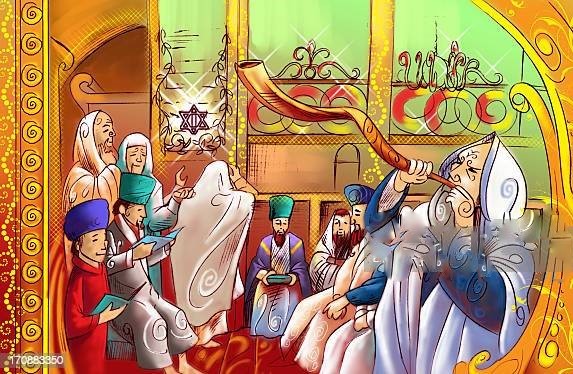KETER: YESHIVAT HAVERIM יְשִׁיבָה חברים – BABYLONIAN TALMUD p72

MISHNA IV.: The hot water contained in a “Muliar” (caldron), the live coals of which have
been cleared away before the Sabbath set in, may be used on the Sabbath; but the hot water
contained in an “Antikhi” (another kind of kettle), even if cleared of live coals, is not to be used
on the Sabbath.
GEMARA: What is a Muliar? A Boraitha states: “It is a vessel provided with an attachment for
live coals, used for keeping water”; as for an Antikhi, Rabba says it is a Bekiri (a vessel similar
to a Muliar, but of heavier construction and continually in use). R. Na’hman b. Itz’hak says: It is
a Bedude (a large kettle with an attachment underneath for live coals). There is a Boraitha in
support of the opinion of R. Na’hman: “The hot water in an Antikhi, even if the coals thereof are
cleared away or damped, is not permitted to be used, for the heavy bottom keeps the heat.”
MISHNA V.: Into a kettle, the hot water of which has been spilt out and which has been
removed from the fire, cold water is not permitted to be poured, for the purpose of heating; but it
is permitted to pour water into the kettle, or into a cup, for the purpose of making such water
lukewarm.
GEMARA: How is this to be understood? Said Abayi: It means thus: “Into a kettle, the fire of
which has been removed, which still contains hot water, a small quantity of cold water may not
be poured, for the purpose of warming; but a large quantity, to make the hot water lukewarm is,
however, permitted. Into a kettle, the hot water of which has been entirely removed, no cold
water at all may be poured, because it tempers the vessel. And it is in accordance with R.
Jehudah, who holds that an act which pleases one, if done even unintentionally, is prohibited.
Said Rabh: “Even the above-mentioned large quantity is allowed only to make the water
lukewarm; but not such a quantity as will entirely neutralize the hot water and tend to temper the
vessel.” Samuel, however, permits any quantity.
Shall we assume that Samuel is in accordance with R. Simeon (who opposes the above theory of
R. Jehudah), but did he not say that it is permitted to extinguish live dross on public ground (to
prevent injury), but not charcoal? And if he agrees with R. Simeon, this also should be
permitted? As regards labor tending to the accomplishment of a work (prohibited on the
Sabbath), he holds with R. Simeon; but as to the performance of labor, not for its own sake, he
sides with R. Jehudah. Said Rabina: “Since it is permitted to perform labor (prohibited by
rabbinical law), in order to prevent injury, it is also permitted to remove thorns from public
ground, little by little, in distances of less than four ells at a time (in order to prevent injury); but
upon unclaimed ground it may be done in greater distances.”
 SUNDAY PRAYER: HOCHMA-SHACHARIT שַחֲרִית MORNING PRAYER
SUNDAY PRAYER: HOCHMA-SHACHARIT שַחֲרִית MORNING PRAYER SUNDAY PRAYER: HOCHMA-TIKKUN CHATZOT תקון חצות-TIKKUN RACHEL & TIKKUN LEAH
SUNDAY PRAYER: HOCHMA-TIKKUN CHATZOT תקון חצות-TIKKUN RACHEL & TIKKUN LEAH SUNDAY PRAYER: HOCHMA- KABBALAH MED-TIKKUN CHATZOT תקון חצות – LESSON WITH RAV MICHAEL LAITMAN
SUNDAY PRAYER: HOCHMA- KABBALAH MED-TIKKUN CHATZOT תקון חצות – LESSON WITH RAV MICHAEL LAITMAN